Ukraine can and should be helped with a coordinated response from the EU and NATO.
Russia's attempt to incorporate Ukraine into a new Russian sphere of influence or into a new Russian Empire poses clear and pressing challenges to the West in general, and the European Union (EU) in particular.
While one may hope that sanctions deter future aggression from Moscow, Vladimir Putin's self-appointed guardianship of Russian-speaking minorities outside his country's borders suggests otherwise; as do Russian troop build-ups on the Ukrainian border; the repetition of the Crimean pattern in eastern Ukraine; public readiness drills of Russia's strategic nuclear forces; and as evidenced by Russian demands that Ukraine gives autonomy to Russian-speaking areas and distance itself from the North Atlantic Treaty Organization (NATO).
Russia's stipulations are not only a rebuke of closer ties between Ukraine and the West that were torpedoed when ousted President Viktor Yanukovich chose to reject the EU association agreement. They also pose a direct challenge to the EU's general ambition to promote democracy, friendly ties, and mutually beneficial economic exchange between sovereign states in the region.
These conditions can easily be extended to other countries with significant Russian-speaking minorities, including most of Central Asia — whose countries are strategic producers of natural gas — as well as Moldova and the Baltic states. Former Putin aide Andrej Illarionov goes so far as to suggest the Russian president's main goal is to restore the greatness of the former Russian Empire, and exert control over these areas and Finland.
In this light, the only comprehensive approach to contain Russian expansion is by strengthening NATO and the EU, and their engagement with Ukraine. The four required points of action are a military shield, energy independence, benefits for Ukraine, and incentives for Russian-speaking citizens of EU states and association countries.
Military Shield
If the West is serious about containing Russian aggression, it must provide a military shield, not only to Ukraine but to the EU as a whole, and the Baltic states in particular, which will undoubtedly come under increased pressure and threat if the EU does not back off from its engagement with Kiev.
This means association with NATO, which is the only organization that can and should organize military assistance for Ukraine. It has drones, equipment, expertise and the nuclear weapons that Ukraine gave up in exchange for its independence. Given the nature of the informal and undeclared war against Ukraine, it also requires training in counterinsurgency.
German resistance in this regard is unhelpful. Ukraine is still understandably hesitant to join with such an aggressive neighbor and a skeptical Russian-speaking minority, but will have little choice if it wishes to be more than a Russian vassal state under the circumstances. For the moment, Ukrainian joint maneuvers with American forces and NATO equipment are a start, as is NATO's decision to hold exercises in the Baltics. Forward deployments should also be made.
The point of the shield is not to provoke war, but to prevent a further Russian incursion into Ukrainian territory through deterrence in a way that sanctions cannot. Deterrence threatens costs that deny the opponent the rewards of acting before he does so.
Although there is a good political logic in attempting to apply pressure through sanctions, they happen after territory has been seized. These are costs the Russian state has factored into its analysis and is prepared to bear and minimize in its own way.
Key figures within the Russian establishment have reduced their exposure to foreign investment and holdings in recent years under government instructions, a point the Russian government has underlined in response to limited Western sanctions.
More importantly, however, Russia has made progress on securing an agreement with China and India to buy natural gas, which is currently purchased by EU member states. Russia is also expanding its pipeline network to supply the southeastern EU. Doing so means the ultimate EU sanction of ending Russian gas imports — although significant, if it happens at all — is unlikely to avert further military intimidation or intervention.
However, Europe now needs to attain energy independence, or at least energy independence from Russia, to prevent effective Russian leverage. This means promoting energy conservation, sustainable energy, additional energy from alternative sources within the EU, and energy from nearby regions of Africa and Central Asia. According to one study by the Bruegel think-tank, energy independence would require effort, but is feasible.
The EU will encounter resistance from member states that will incur the highest costs to end their dependence on Russian gas for energy, and by Russia, which will seek to shut down alternatives, as they have in Central Asia to date — but the investment must be seen as a strategic priority of the highest order. EU help for the most vulnerable member in finding alternatives and funding the switch is vital. Russia supplies 34% of the EU's natural gas, and most of the gas in the EU's eastern member states, who are as vulnerable as Ukraine to Russia turning off the supply.
Investment in Ukrainian Reforms
What is left of Ukraine needs to see concrete benefits of association with the EU, not just an association on paper. Investment in its own security and independence will have to be paid for, and increased economic activity from investment and trade are essential to help pay for that. This will only really happen if there is a realistic perspective for membership in the future. The EU's limited influence over Turkey is largely to blame on its reluctance to consider full membership for that country. The lessons of that interaction need to be applied in the Ukrainian case.
The benefits of EU membership at some point in the future are many, while not all of them are tangible. Like many countries outside the EU, one of the compelling reasons for citizens to support membership is the confirmation they belong to a club of nations in which democracy, freedom, and the rule of law are anchored so strongly that they cannot be rolled back.
Much of the anger that exploded in Maidan square and across Ukraine was directed against Russian bribes for Yanukovich and his associates in exchange for choosing an agreement with Russia rather than the EU — a deal that benefited ordinary Ukrainians little in comparison to the potential gains of membership, or even association with free trade, as the EU has with Turkey.
EU membership does not come for free, and it does not come easily. Candidate countries must reform their polities and economies to reduce corruption, increase efficiency and liberalize their economies, and demonstrate broad support for the extensive political and individual liberties that Europeans insist on from their members — which forms a considerable part of Europe's soft power as a role model in the region. This means making financial assistance for changes on the road to EU membership contingent on progress on reducing corruption, regardless of who heads the Ukrainian government.
Conditionality applies to accusations of corruption by the former prime minister, and now presidential hopeful, Yulia Timoschenko, and any other politician, at any level. Given its pervasive nature in Ukraine, it is essential the EU remains firm in its conditionality, as it has done with most other EU accession countries, but failed to do in Bulgaria and Romania, to its regret.
Much of this transformation benefits citizens. But economic change is often painful and can be facilitated with financial assistance, in addition to the economic gains that go with freer economic trade and investment, and the bonus that countries enjoy from global investors when they sign on with the EU.
Benefits and Rights for Russian-Speakers
The EU has a bad record on treating Russian-speaking residents where they form significant minorities. Estonia and Latvia in particular — in which Russian-speaking residents comprise 30% and 40% of the population respectively — still refuse to grant Russian-speaking residents citizenship on ethnic grounds, particularly language grounds, on the basis of having served for the Soviet Army, or allow the use of Russian as an official language for schools, public service bodies and so on.
This has not only drawn critique from the European Court of Human Rights and the Organization for Security and Cooperation in Europe, it also runs in the face of Europe's generally successful strategy after 1991 to promote EU membership for central and eastern European countries, and to tie it to the rights of ethnic minorities.
Allowing this problem in the Baltics to fester hurts Europe's soft power as an attractive and good actor in regional affairs that others support and want to join. It also makes it easy for Russians to believe Putin when he claims he is doing what he has to do to protect Russians outside Russia's borders. Resolving this problem will not only reduce the EU's vulnerabilities but, if successful, increase its internal cohesion by assuring the Russian-speaking parts of all the EU member states that membership — in the EU and in the West in general — works in their interest. Over the long-term, Russians in Russia will notice as well.
Hard and Soft Power in the Ukrainian Crisis
The European Union, for all of its unwillingness to acknowledge the fact, has been confronted with the reality that hard, military power, is an essential component of Europe's collective and individual national security. Deterrence is essential and will cost, even if NATO must pay attention to affordability.
Crimea has already been lost — a confrontation to reclaim it would revisit the high-stakes brinkmanship of the Cuban Missile Crisis and add the complication that many Crimeans appear to approve of the annexation — but a possible repetition of the Crimean scenario in eastern and southern Ukraine threatens that Crimea will not be the last annexation, if the EU and NATO do not take firm and immediate action.
Should Russia move in as it has indicated it will, if force is used against the protesters, there will be but a small stretch of land across Odessa and the south of Ukraine, providing a corridor to Transnistria in Moldova for Russia to complete its encirclement of the country. The US and NATO are rightly concerned.
However, military efforts and Ukrainian incentives will be for nothing if the EU does not do more to live up to its promise: to ensure freedom, rights and good governance for all, regardless of what government is in power or which country one lives in. The main benefit is and always has been anchoring European states in a culture of democratic peace that allows them to flourish. For a brief moment, that peace could survive in the absence of significant threat. Those days are now over.
Europe is once again in a geopolitical confrontation with an arms race in which the two sides treat each other as hostiles. That repeats the most salient features of the last Cold War. The ideological component of those days is absent. Communism on the Russian side has been replaced by nationalism, irredentism and revanchism today.
And although some may see this as an issue between Russia and the Ukraine, it is not — it was triggered through a long series of EU and NATO efforts to incorporate former Soviet satellites into their organizations. Putin's policy is to stop those efforts in Ukraine and make up for the mistakes of the past.
The next Cold War is here. There is no going back.
The views expressed in this article are the author's own and do not necessarily reflect Fair Observer’s editorial policy.
Image: Copyright © Shutterstock. All Rights Reserved
Support Fair Observer
We rely on your support for our independence, diversity and quality.
For more than 10 years, Fair Observer has been free, fair and independent. No billionaire owns us, no advertisers control us. We are a reader-supported nonprofit. Unlike many other publications, we keep our content free for readers regardless of where they live or whether they can afford to pay. We have no paywalls and no ads.
In the post-truth era of fake news, echo chambers and filter bubbles, we publish a plurality of perspectives from around the world. Anyone can publish with us, but everyone goes through a rigorous editorial process. So, you get fact-checked, well-reasoned content instead of noise.
We publish 2,500+ voices from 90+ countries. We also conduct education and training programs
on subjects ranging from digital media and journalism to writing and critical thinking. This
doesn’t come cheap. Servers, editors, trainers and web developers cost
money.
Please consider supporting us on a regular basis as a recurring donor or a
sustaining member.
Will you support FO’s journalism?
We rely on your support for our independence, diversity and quality.




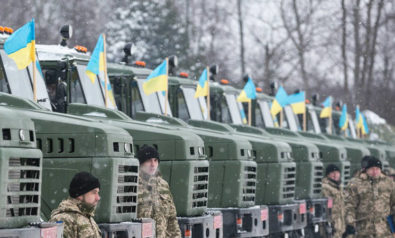

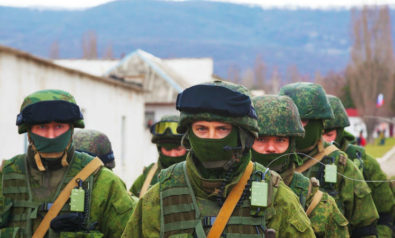
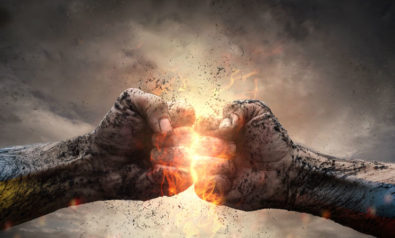
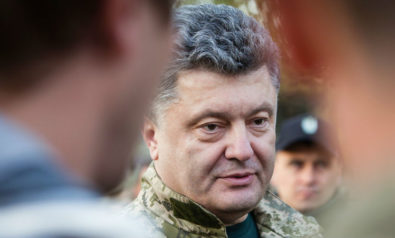
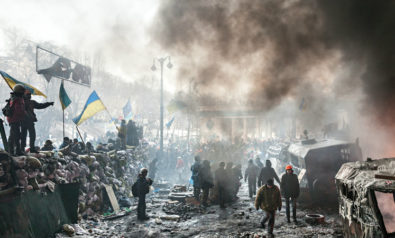


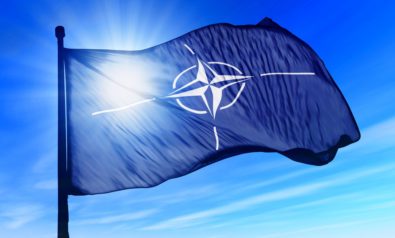

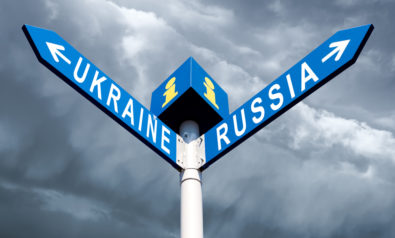
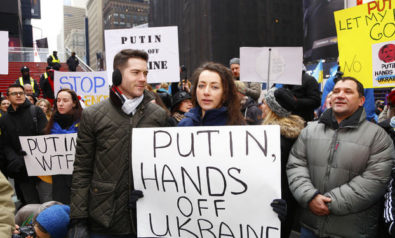

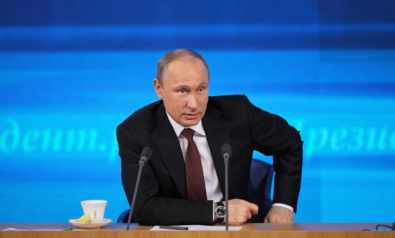
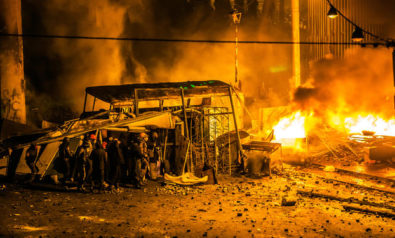

Comment